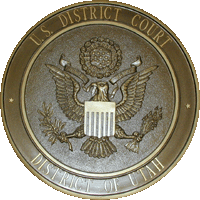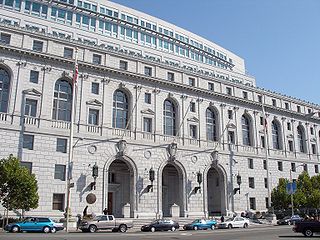
DeCSS is one of the first free computer programs capable of decrypting content on a commercially produced DVD video disc. Before the release of DeCSS, open source operating systems could not play encrypted video DVDs.
The DVD Copy Control Association is an organization primarily responsible for the copy protection of DVDs. The Content Scramble System (CSS) was devised for this purpose to make copyright infringement difficult, but also presents obstacles to some legitimate uses of the media. The association is also responsible for the controversial Regional Playback Control (RPC), the region encoding scheme which gives movie studios geographic control over DVD distribution.
Prior restraint is censorship imposed, usually by a government or institution, on expression, that prohibits particular instances of expression. It is in contrast to censorship which establishes general subject matter restrictions and reviews a particular instance of expression only after the expression has taken place.
Anti-circumvention refers to laws which prohibit the circumvention of technological barriers for using a digital good in certain ways which the rightsholders do not wish to allow. The requirement for anti-circumvention laws was globalized in 1996 with the creation of the World Intellectual Property Organization's Copyright Treaty.
A&M Records, Inc. v. Napster, Inc., 239 F.3d 1004 (2001) was a landmark intellectual property case in which the United States Court of Appeals for the Ninth Circuit affirmed the ruling of the United States District Court for the Northern District of California, holding that defendant, peer-to-peer (P2P) file-sharing service Napster, could be held liable for contributory infringement and vicarious infringement of the plaintiffs' copyrights. This was the first major case to address the application of copyright laws to peer-to-peer file sharing.
In re Aimster Copyright Litigation, 334 F.3d 643, was a case in which the United States Court of Appeals for the Seventh Circuit addressed copyright infringement claims brought against Aimster, concluding that a preliminary injunction against the file-sharing service was appropriate because the copyright owners were likely to prevail on their claims of contributory infringement, and that the services could have non-infringing users was insufficient reason to reverse the district court's decision. The appellate court also noted that the defendant could have limited the quantity of the infringements if it had eliminated an encryption system feature, and if it had monitored the use of its systems. This made it so that the defense did not fall within the safe harbor of 17 U.S.C. § 512(i). and could not be used as an excuse to not know about the infringement. In addition, the court decided that the harm done to the plaintiff was irreparable and outweighed any harm to the defendant created by the injunction.

David S. Touretzky is a research professor in the Computer Science Department and the Center for the Neural Basis of Cognition at Carnegie Mellon University. He received a BA in Computer Science at Rutgers University in 1978, and earned a master's degree and a Ph.D. (1984) in Computer Science at Carnegie Mellon University. Touretzky has worked as an Internet activist in favor of freedom of speech, especially what he perceives as abuse of the legal system by government and private authorities. He is a notable critic of Scientology.

Online Policy Group v. Diebold, Inc., 337 F. Supp. 2d 1195, was a lawsuit involving an archive of Diebold's internal company e-mails and Diebold's contested copyright claims over them. The Electronic Frontier Foundation and the Stanford Cyberlaw Clinic provided pro bono legal support for the non-profit ISP and the Swarthmore College students, respectively.

Intellectual Reserve, Inc. v. Utah Lighthouse Ministry, Inc., 75 F. Supp. 2d 1290, was a United States district court decision on the subject of deep linking and contributory infringement of copyright.
William Johnson Elfving is an American lawyer and former judge of the Superior Court of California, County of Santa Clara. He was appointed to the bench on November 13, 1997 and retired in 2017. Prior to his appointment he was in private practice for 30 years. He is the chair of the Superior Court Arbitration/ADR committee. He is most notable because of his many rulings on specialized areas of intellectual property law.
DVD X Copy is a consumer software program that enabled novice computer users to copy any DVD movie to any blank DVD. Most commercial DVD movies include Content Scrambling System (CSS), a copy-protection technology designed to prevent DVD movies from being copied. This controversial DVD copy software program included technology that decrypts the CSS copy protection mechanism on DVD movie discs. DVD X Copy products are still being sold on the DVD X Copy website, although it was previously believed to be no longer sold or supported.
The WIPO Copyright and Performances and Phonograms Treaties Implementation Act, is a part of the Digital Millennium Copyright Act (DMCA), a 1998 U.S. law. It has two major portions, Section 102, which implements the requirements of the WIPO Copyright Treaty, and Section 103, which arguably provides additional protection against the circumvention of copy prevention systems and prohibits the removal of copyright management information.

The Digital Millennium Copyright Act (DMCA) is a 1998 United States copyright law that implements two 1996 treaties of the World Intellectual Property Organization (WIPO). It criminalizes production and dissemination of technology, devices, or services intended to circumvent measures that control access to copyrighted works. It also criminalizes the act of circumventing an access control, whether or not there is actual infringement of copyright itself. In addition, the DMCA heightens the penalties for copyright infringement on the Internet. Passed on October 12, 1998, by a unanimous vote in the United States Senate and signed into law by President Bill Clinton on October 28, 1998, the DMCA amended Title 17 of the United States Code to extend the reach of copyright, while limiting the liability of the providers of online services for copyright infringement by their users.

Facebook, Inc. v. Power Ventures, Inc. is a lawsuit brought by Facebook in the United States District Court for the Northern District of California alleging that Power Ventures Inc., a third-party platform, collected user information from Facebook and displayed it on their own website. Facebook claimed violations of the CAN-SPAM Act, the Computer Fraud and Abuse Act ("CFAA"), and the California Comprehensive Computer Data Access and Fraud Act. According to Facebook, Power Ventures Inc. made copies of Facebook's website during the process of extracting user information. Facebook argued that this process causes both direct and indirect copyright infringement. In addition, Facebook alleged this process constitutes a violation of the Digital Millennium Copyright Act ("DMCA"). Finally, Facebook also asserted claims of both state and federal trademark infringement, as well as a claim under California's Unfair Competition Law ("UCL").

DVD Copy Control Association, Inc. v. Bunner was a lawsuit that was filed by the DVD Copy Control Association in California, accusing Andrew Bunner and several others of misappropriation of trade secrets under California's implementation of the Uniform Trade Secrets Act. The case went through several rounds of appeals and was last heard and decided in February 2004 by the California Court of Appeal for the Sixth District.

DVD Copy Control Association, Inc. v. Kaleidescape, Inc., 176 Cal. App. 4th 697 is a legal case heard by the California Court of Appeal concerning breach of contract and breach of the implied covenant of good faith and fair dealing. It discusses incorporation by reference regarding a supplemental document that was not part of the written license agreement between the parties. The Court of Appeal reversed the trial court's judgment and ruled in favor of the plaintiff, finding that defendant was bound to the entire contract, including the supplemental document.

RealNetworks, Inc. v. DVD Copy Control Association, Inc., 641 F. Supp. 2d 913 (2009), is a United States District Court case involving RealNetworks, the movie studios and DVD Copy Control Association regarding the Digital Millennium Copyright Act (DMCA) claims on the manufacturing and distribution of RealDVD, and a breach of license agreement. The district court concluded that RealNetworks violated the anti-circumvention and anti-trafficking provisions of the DMCA when the DVD copying software RealDVD bypasses the copy protection technologies of DVD.
A&M Records, Inc. v. Napster, Inc., 114 F.Supp.2d 896 (2000), was the district court case which preceded the landmark intellectual property case of A&M Records, Inc. v. Napster, Inc., 239 F.3d 1004 (2001). The case was heard by Judge Marilyn Hall Patel of the United States District Court for the Northern District of California. Napster appealed this case to United States Court of Appeals for the Ninth Circuit.

321 Studios v. Metro Goldwyn Mayer Studios, Inc., 307 F. Supp. 2d 1085, is a district court case brought by 321 Studios seeking declaratory judgment from the court that their DVD ripping software, i.e. DVD Copy Plus and DVD X Copy do not violate the provisions of the Digital Millennium Copyright Act ("DMCA"), or, in the alternative, that the DMCA is unconstitutional because Congress exceeded its enumerated powers, these provisions are unconstitutionally vague and/or violate the First Amendment.

Amaretto Ranch Breedables, LLC v. Ozimals, Inc. was a copyright case in the United States District Court for the Northern District of California involving a DMCA takedown notice dispute between companies that produce virtual animals on Second Life. Ozimals filed a DMCA takedown notice to Linden Research, the makers of Second life, claiming that Amaretto's horse infringed on their bunnies and demanding their removal. Consequently, Amaretto responded with a counter-DMCA notice and applied to the court for a temporary restraining order to forbid Linden Research from removing their virtual horses. This was granted and held in effect as the case proceeded. Amaretto claimed in court that Ozimal's DMCA notice was copyright misuse and asked for a declaration that its horses did not infringe copyright. Ozimals counterclaimed for copyright infringement. The court eventually dismissed both claims.






